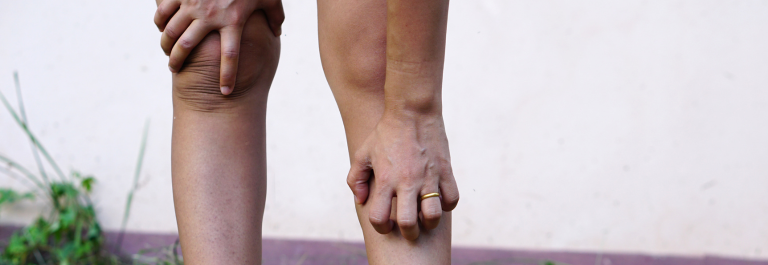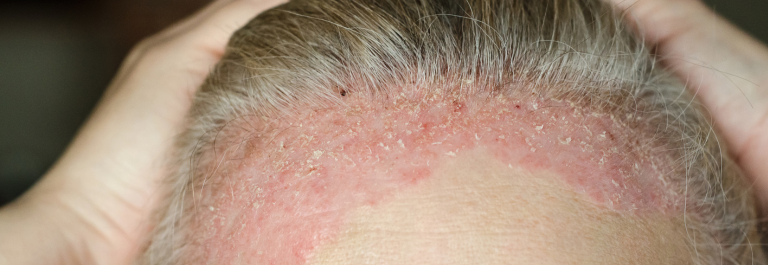Bed sores, also called pressure ulcers or decubitus ulcers, are painful injuries caused by sustained pressure on the skin. These wounds develop when fragile skin is pressed against a surface, reducing blood flow and damaging the surrounding tissue. They often affect people with limited mobility, such as those with spinal cord injuries or medical conditions that require long periods of bed rest.
In this blog, we’re going to explore:
- What bed sores are and how they develop
- Risk factors and preventive measures for pressure ulcers
- How natural skincare can aid in soothing and treating affected skin
Read on to learn how to naturally protect vulnerable skin, promote healing, and naturally prevent pressure injuries.
What Are Bed Sores, and How Do They Develop?
Bed sores occur when areas of skin endure prolonged pressure, reducing blood flow to the tissue. Without adequate blood supply, skin cells begin to die, leading to open sores and dead tissue. Common sites for pressure sores include bony parts of the body like the shoulder blades, hips, tailbone, and heels.
The risk of bed sores increases when factors like poor nutrition, vascular disease, or insufficient upper body strength come into play. For people with darker skin, pressure ulcers may be harder to detect early, as redness or discoloration might not be as visible.
Stages of Bed Sores
Stage 1
Red, irritated skin that does not blanch when pressed.
Stage 2
Broken skin or open sores with visible damage to the outer skin layer.
Stage 3
Deeper wounds affecting body fat and surrounding tissue.
Stage 4
Severe sores that may expose bone, muscle, or tendons, risking life-threatening infections like bone and joint infections or squamous cell carcinoma.
Risk Factors and Preventive Measures
Certain medical conditions and lifestyle factors increase the likelihood of developing pressure sores. People with spinal cord injuries, vascular disease, or poor nutrition are particularly vulnerable. Inadequate movement or sustained pressure on an area of skin can exacerbate tissue damage.
How to Prevent Pressure Ulcers
Change Positions Frequently
Avoid putting pressure on the same area for extended periods. Changing positions every 1-2 hours helps ease pressure and restores blood flow.
Use Supportive Tools
Specially designed mattresses, cushions, and overlays can reduce pressure on fragile skin.
Maintain Skin Hygiene
Cleanse affected skin with mild soap and pat dry gently. Use moisture barrier creams to protect skin from irritation caused by excess moisture.
Adopt a Healthy Diet
Nutrient-rich meals promote wound healing and maintain healthy skin. Proteins, vitamins, and minerals are essential for repairing tissue damage.
Risk assessments by a healthcare professional can help identify potential pressure points and create a personalized treatment plan to prevent severe sores.
How Natural Skincare Can Help
We believe in harnessing the power of nature to support healthy skin. For people managing pressure sores, a natural skincare routine can complement medical treatments and enhance comfort.
Relieve Pressure and Protect Vulnerable Skin
Natural balms, oils, and soaps containing ingredients like calendula, shea butter, and chamomile soothe irritated skin while promoting blood supply to affected areas. Our Coconut and Sunflower Oil Soap Bar is a gentle cleanser made with coconut oil, shea butter, and sunflower oil, offering a rich lather that leaves skin soft and nourished. With no added fragrances, it’s perfect for sensitive or fragile skin, making it safe for use from face to toe, even for kids and babies.
Moisturize and Repair
Keeping the skin hydrated is essential for wound care, as dry or cracked skin can worsen sores and delay healing. We recommend our Nourish + Hydrate Manuka Balm, a gentle yet effective balm crafted with just six natural ingredients. Its buttery texture and nourishing properties make it ideal for fragile skin, helping to lock in moisture, repair affected areas, and soothe discomfort without irritation. Perfect for daily use, this honey-infused cream supports healthy, hydrated skin from head to toe.
Remove Dead Tissue and Support Healing
For open sores or broken skin, natural wound care solutions that gently remove dead skin without harsh chemicals are key. Products with honey, such as our Nourish + Hydrate Manuka Balm, offer antimicrobial and soothing properties to encourage tissue repair and reduce the risk of infected tissue while nurturing fragile skin.
Avoid Skin Irritants
Opt for skincare products free from artificial fragrances, dyes, and nonsteroidal anti-inflammatory drugs (NSAIDs) that may irritate already sensitive areas of skin. Instead, focus on gentle, natural solutions that promote general health and wound healing.
Treat your Pressure Sore Today
Preventing and treating pressure sores requires a combination of proactive measures, medical guidance, and supportive skin care. With consistent care and attention, you can naturally maintain healthy skin and ease the discomfort of pressure injuries.










